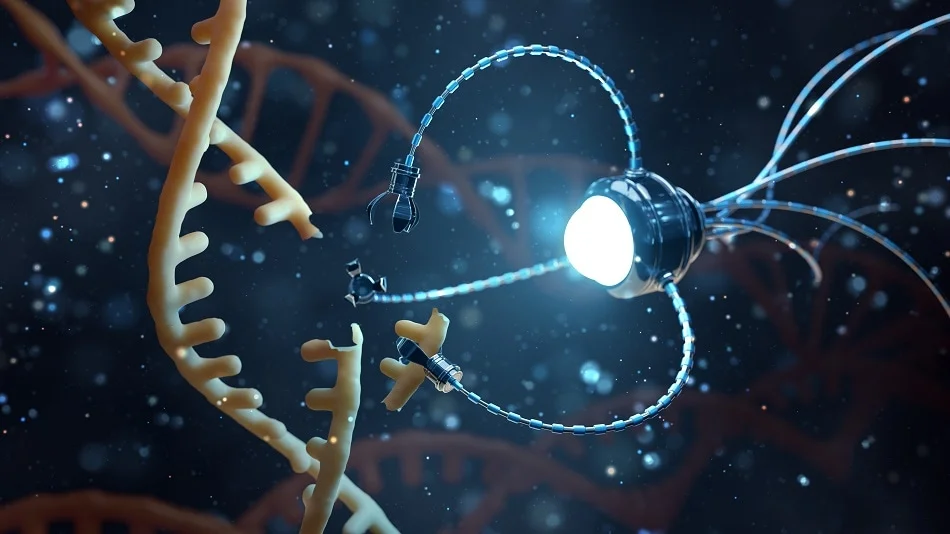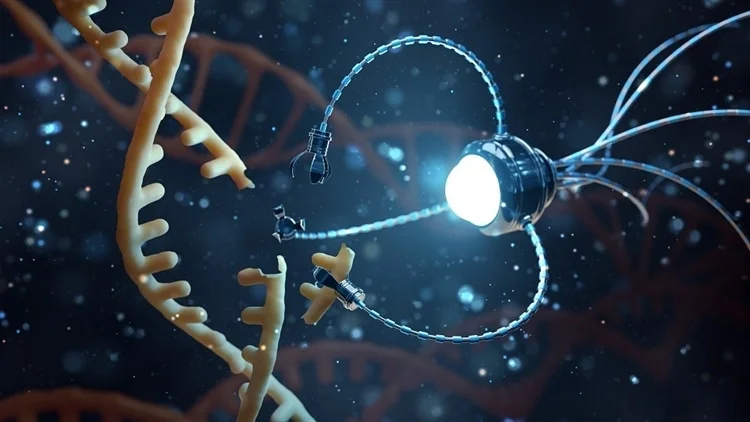Now, what if I told you that some brainy folks believe they’ve found a way to make every throw a bullseye? Enter the world of nanorobots, and according to futurist Raymond Kurzweil, they might just be our golden ticket to the singularity—and, yes, plausible immortality.
The Visionary’s Vision
Raymond Kurzweil isn’t your run-of-the-mill futurist. He’s the guy who’s been tinkering with computers since they were the size of your living room, always a step ahead, like a techie Nostradamus. In his upcoming book, The Singularity is Nearer, he paints a picture that’s both fantastical and scientifically tantalizing. Kurzweil argues that the marriage of artificial intelligence (AI) and biotechnology is poised to revolutionize the way we think about aging. He posits that these microscopic nanorobots could dive into our bloodstream and fix cellular damage with the precision of a neurosurgeon on espresso.
What’s the Deal with Nanorobots?

Picture nanorobots as the SWAT team of the biological world, each equipped with sensors, manipulators, and tiny computers. These diminutive dynamos, envisioned to be about the size of a cell, could potentially patrol our bodies, zapping away the wear and tear of aging. Kurzweil suggests that several hundred billion of these bots per body might be the magic number. They’d repair cells, rejuvenate tissues, and basically do all the housekeeping that our bodies, bless them, get a bit lax about as the years roll on.
The Road to Immortality
Kurzweil’s thesis is bold: cure aging at the cellular level, and you’re not just extending life—you’re fundamentally changing the game. He agrees with biomedical gerontologist Aubrey de Grey, who famously claimed that the first person to live to 1,000 years might already be among us. If nanotechnology by 2050 can push 100-year-olds to live to 150, Kurzweil believes that with AI’s exponential advancements, we could stretch those lifespans even further.
Of course, to the skeptic, this all sounds like a pitch for a sci-fi blockbuster. We don’t yet have the technology to bring Kurzweil’s vision to life, and who’s to say we ever will? Yet, Kurzweil argues that the potential is there, just waiting for the right convergence of AI, biotech, and human ingenuity.
The Practical Implications
Let’s dial it back to the here and now. Why should you care about some futuristic mumbo-jumbo that sounds more like an episode of Black Mirror than reality? Because the implications are profound. If we crack the code on aging, it could upend everything from healthcare to retirement. Imagine a world where your golden years are spent skydiving and learning new languages, not fretting over arthritis and memory loss.
And it’s not just about living longer—it’s about living better. Nanorobots could potentially tackle diseases that have stymied us for centuries, from cancer to Alzheimer’s. They could help us repair organs without invasive surgeries, making organ donation a relic of the past. The quality of life improvements alone could be monumental.
The Skeptics and the Dreamers
Naturally, there are plenty of hurdles to clear. Ethical considerations, technological limitations, and sheer human skepticism all stand in the way. Yet, every groundbreaking innovation faced its share of naysayers. The Wright brothers were told humans weren’t meant to fly. Now, we complain about Wi-Fi on planes.
Kurzweil’s vision might seem like a moonshot, but isn’t that what progress is all about? Taking the improbable and inching it closer to the possible? Whether or not we achieve the singularity or unlock the secret to immortality, the journey there promises to push the boundaries of what we believe is achievable.
A Future Worth Imagining
So, as you mull over the prospect of living to see the next millennium, remember that today’s wild ideas are often the seeds of tomorrow’s breakthroughs. Whether nanorobots become our microscopic saviors or just a fascinating footnote in the annals of science, they remind us to keep dreaming big. Because in the grand carnival of life, sometimes, just sometimes, you hit that bullseye.
4o





